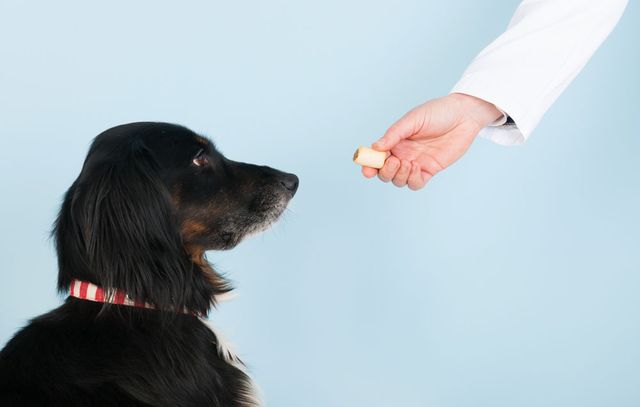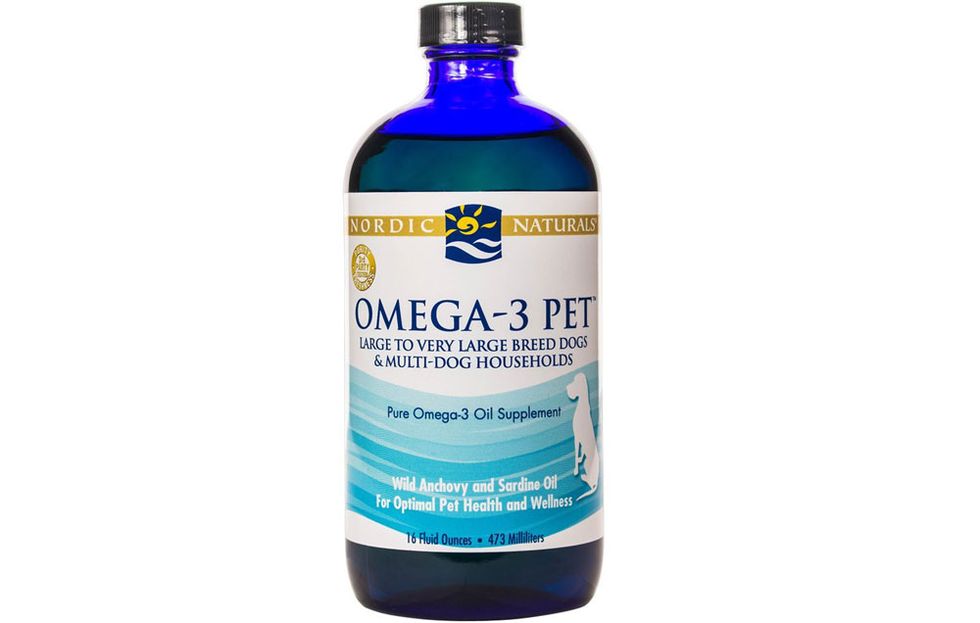This story originally appeared on Rodale’s Organic Life in August 2017.
It’s 2017, and pet nutrition isn’t just about food. Nope, in addition to deciding whether to feed furry friend a diet of kibble or homemade fare, you also have to figure out supplements.
Which isn’t always easy. There are a lot of them out there—from multivitamins to stress support drops. But do you really need them all?
Probably not. If your dog or cat eats a balanced diet and is general healthy, she most likely doesn’t need to load up on extras, says Gary Richter, integrative veterinarian and author of The Ultimate Pet Health Guide. That said, there are a few supplements that could give your pet a boost, especially if she’s older.
Here are three that holistic vets regularly recommend—and that they give to their own pets.
Omega-3 Fatty Acids
Thanks to their anti-inflammatory properties, fish oil supplements can help promote joint and heart health, help prevent against cognitive dysfunction and allergic reactions, and even help your dog or cat’s coat stay smooth and shiny. That’s why Judy Morgan, holistic veterinarian and author of From Needles to Natural: Learning Holistic Pet Healing, gives a daily dose of omega-3s to all 9 of her dogs, who range in age from 9 to 16.
Which type is best? Look for an oil that comes from clean waters (like Scandinavia, Iceland, or New Zealand) and is tested for heavy metal contamination. And opt for a smaller container that you can use up in 30 days or less. “Fish oil is subject to oxidation or spoilage, and giving rancid oil is worse than giving no oil,” Morgan says. Try Nordic Naturals Omega-3 Pet—it’s clean, and it comes in bottle sizes designed for small cats and dogs, medium dogs, or large dogs.
Probiotics
A boost of good bacteria can promote a healthy microbiome in people—and the same is true for pets. Probiotic supplements encourage healthy digestion, and they can stave off or help relieve issues like gassiness, loose stool, or diarrhea, explains Carol Osbourne, integrative veterinarian and founder of the Chagrin Falls Pet Clinic.
“I find that pets with tummy issues tend to benefit greatly after just a few doses of a probiotic supplement,” she says. Some findings also show that probiotic supplements can boost dogs’ immune systems.
Look for a supplement with strains of live active cultures normally found in your pet’s gut, like lactobacillus and bifidobacterium. Osbourne gives Dr. Carol’s Dog Probiotics, her own blend, to her dogs Joe and Smokey, both 12. Nusentia Probiotic Miracle Premium Blend for Dogs & Cats is another good option.
A hip and joint supplement
“My 14-year-old cat Freida is getting arthritic in her old age, so she receives it daily to support her cartilage and keep her comfortable,” Richter says. Indeed, years of running, jumping, and playing can lead to natural wear and tear on dogs’ and cats’ joints. Supplementing with glucosamine and chondroitin—two naturally occurring components of cartilage—could help ease painful inflammation, so your pet can stay active longer. (Here's how to safely exercise with your dog.)
Look for a joint supplement derived from animal-based sources (not vegetarian ones) that delivers 30mg each glucosamine and chondroitin per pound of your pet’s body weight, recommends Morgan. Try K-10+ Glucosamine, which comes in chewables as well as a liquid formula that you can add directly to your pet’s water.















